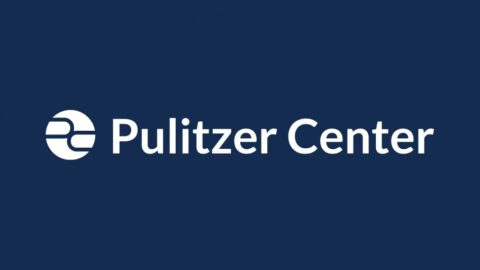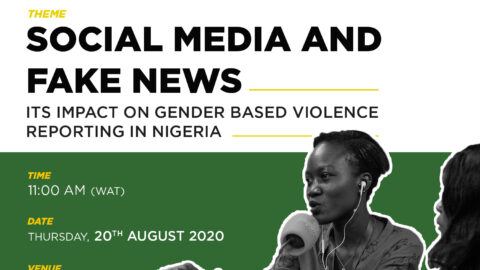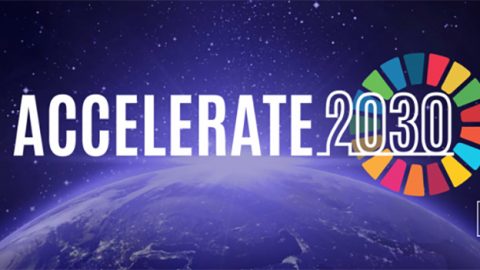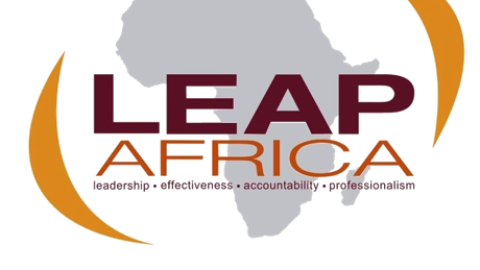As I write this, it is four weeks to Nigeria’s presidential election. We are four weeks away from the date when Nigerians will stroll out of their homes to decide which of the 14 presidential aspirants is worthy of occupying Aso Rock, Nigeria’s seat of power from May 29, 2015 to May 2019. International and local interest is huge given the urgent needs of the country. It is expected that whoever wins will address national issues with a fervour never seen before. There are expectations that the winner will help pull Nigeria from the cliff which it has formed a strange habit of being it.
The world’s number one search engine, Google is keen on having the fourth estate of the realm ? the press ? provide informed analysis on all aspects of the election cycle. And it is interested in doing this from a non-partisan rostrum. With technology having massive influence on almost all aspect of living, it is critical that politics, one of the most important activity in society should also have a meeting point with new technology made available by the internet. For six hours last week, Google brought together about a hundred journalists and freelancers from the print, electronic and online media to unveil what is possible as it concerns reportage of the election. Figures from the 2011 presidential election was dominantly used during the hands-on session. It was explained how the popular infograph showing the map of Nigeria and highlights of states won by candidate/political party was arrived at after the result was released. The acceptance speech of the two visible contenders for the 2015 election was also reviewed in a manner that showed what words were dominant in the speech and how reportage of this could help enfranchised Nigerians make informed choices during the election.
Anchored by Google’s Anglophone West Africa’s Communication and Public Affairs Manager and his colleagues, the lessons were new and the ideas fresh given the possibility of how technology could make news easily consumed. While searches are possible on Google, the advanced query search option for election related purpose helps to make searches more refined, better and accurate. The use of this is possible at http://www.google.com.ng/advanced_search and another option is to write out the search item in the search box followed by site:(The website being searched); note the absence of space before and after the colon. For example – Candidates for 2015 Presidential Election site:www.punchng.com A result like this will only show results from the site of the Punch Newspaper. There is also the option of dictating the filetype of choice by adding for example filetype:pdf This query will only display results that are PDF attachments.
Another tool that can be used for informed reportage or to hunt for trends and investigate into it is Google Trends. www.google.com/trends offers options on various trends and has tabs that can activate comparison between trends in graphical form. It helps to know exactly what Nigerians are searching for and push out articles around subjects of interest. For writers and social activists who may be interested in observing social media trends during the election www.topsy.com is a perfect tool for this given the options and views it provides. Topsy searches and analyses the Social Web showing what is most popular in social media space. www.tweetarchivist.com is an essential analytics for measuring a twitter hashtag campaign or search. Within the scope of the forthcoming election, it can be used by the campaign secretariat of any political party or candidate to see in real time what people are saying about a candidate and react in equal measure where necessary or use the information for reporting.
www.wordle.net is a tool used to obtain cloud of words. It works better however with Firefox browser. “The clouds give greater prominence to words that appear more frequently in the source text while giving allowance to tweak the cloud with different fonts, layouts, and colour schemes. www.wordle.net/create however works better with Firefox browser. It is a simple tool that only requires user to paste in a bunch of text or enter the URL of any blog, blog feed, or any other web page.
Of massive interest was Google’s Fusion table during the training. www.google.com/fusiontables; though complex to use, the result obtained after use is worth the time and skills it requires. “Google Fusion Tables is a web service provided by Google for data management. Fusion tables can be used for gathering, visualising and sharing data tables. Data are stored in multiple tables that Internet users can view and download. The web service provides means for visualizing data with pie charts, bar charts, lineplots, scatterplots, timelines, and geographical maps.” In terms of practical use, a journalist with sound understanding of Google Fusion tables can use the knowledge to presently map out the country based on states that the two leading presidential aspirants have visited thus far and highlight issues that came to fore during their visits there. www.piktochart.com also enjoyed a brief mention at the meeting. Totally web-based, it allows users without intensive skills as graphic designers to create professional infographics by just a few clicks and creativity to match.
The session on www.youtube.com drew substantial interest given the visual form it came with. With internet penetrating increasing, data are pointing that Nigeria media houses still has a lot to learn and do in terms of creating quality content for online use. Owned by Google, the site allows users to upload, view and share videos on it at no cost. Nigeria’s politics is yet to be maximised on the space as major searches only turn up results from few relevant sources leaving a huge gap. A unique Uganda based news casting duo was shown casting political news using hip-hop music and using www.youtube.com to share the content. Video blogging possibility also holds for print journalists, who can have their platforms combine pictures and video clips through crowdsourcing and make them tidy through editing before pushing same to the public. With more than 1 billion unique users visit each month; over 6 billion hours of video watched monthly; 100 hours of video uploaded every minute and 80% of YouTube traffic comes from outside the United States, Youtube can only be coveted rather than being ignored.
Google’s dedicated space for the 2015 elections also comes in highly recommended. www.google.ng/elections is a project from Google Politics and Election unit with videos, event agenda as touching the election and more importantly aggregated election news. Like a number of Nigerians, it will be fun to see how Google will mix its doodle for February 14th between the dual activities that the day carries – Valentine’s Day celebration and Nigeria’s presidential election. With tools like those unveiled during Google’s session last week, the taste of election related reports may be on the verge of change; the type inspired by internet aided technology. I am @SolaFagro on twitter.
——————————————————————————————————————————————————————-
 ‘Sola Fagorusi is a social entrepreneur and a prized freelance writer with a bias for youth and rural development. He started off as a youth staff with Action Health Incorporated in 2001. The Obafemi Awolowo University, Ile-Ife alumnus currently manages the programmes of OneLife Initiative, Nigeria. ‘Sola is a DESPLAY Africa (Africa’s foremost and most consistent annual youth democracy academy) fellow and has been on its faculty since 2011. Keenly interested in governance and pan-Africanism, he volunteers as online editor of YouthHub Africa; a cyber-community for young Africans involved in social change. He believes in the efficacy of oratory and writing as tools to drive developmental engagements. As a freelance writer, he spares time to pen thoughts on contemporary societal issues and is a weekly columnist with Nigeria’s most read daily ? Punch Newspaper. His training and capacity cuts across democracy and governance, leadership, micro-enterprise, ICT4D, SRH, value chains, development communication and policy issues. He tweets @SolaFagro and blogs at www.kadunaboy.com
‘Sola Fagorusi is a social entrepreneur and a prized freelance writer with a bias for youth and rural development. He started off as a youth staff with Action Health Incorporated in 2001. The Obafemi Awolowo University, Ile-Ife alumnus currently manages the programmes of OneLife Initiative, Nigeria. ‘Sola is a DESPLAY Africa (Africa’s foremost and most consistent annual youth democracy academy) fellow and has been on its faculty since 2011. Keenly interested in governance and pan-Africanism, he volunteers as online editor of YouthHub Africa; a cyber-community for young Africans involved in social change. He believes in the efficacy of oratory and writing as tools to drive developmental engagements. As a freelance writer, he spares time to pen thoughts on contemporary societal issues and is a weekly columnist with Nigeria’s most read daily ? Punch Newspaper. His training and capacity cuts across democracy and governance, leadership, micro-enterprise, ICT4D, SRH, value chains, development communication and policy issues. He tweets @SolaFagro and blogs at www.kadunaboy.com








